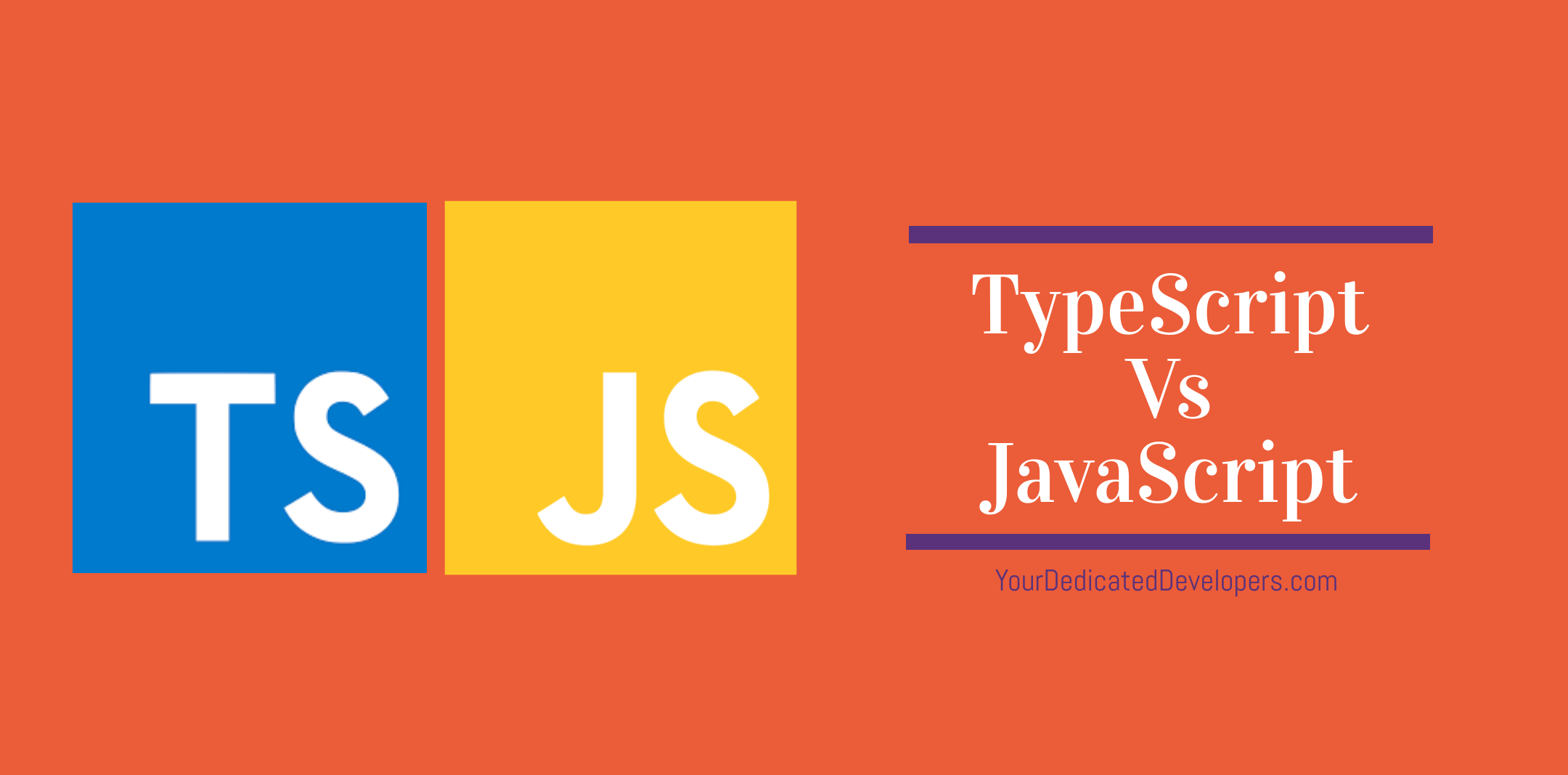TypeScript Vs JavaScript

by admin
JavaScript is a client-side programming language but the addition of node.js makes it a server-side technology. It is used to create interactive web pages. But, it doesn’t include object orientation, strong type checking, compile-time error checks, etc. Moreover, the lengthy code becomes difficult to handle. TypeScript resolves all these issues to make JavaScript a full-fledged server-side technology at the enterprise level. So, simply TypeScript is JavaScript for application-scale development. Let us delve deeper to know the advantages, disadvantages, and differences between TypeScript and JavaScript languages.
Advantages of TypeScript
Being the superset of JavaScript, TypeScript has numerous benefits as follows:
- It helps the developer to write robust and clear code as the feature of static typing points the errors while writing scripts.
- Type annotations identify the constructs that can possibly be errors.
- It provides better collaborations for large projects where a number of developers work simultaneously.
- With TypeScript, one can use better documentation tools e.g. Fetch API as compared to JavaScript.
- It has many in-built features like auto-compilation, ECMAScript 6 code support, and dynamic typing that gives enhanced productivity.
Disadvantages of TypeScript
- It does not support abstract classes.
- It takes more time due to the compilation phase.
Advantages of JavaScript
- Some developers still prefer JavaScript to TypeScript because of the flexibility it offers.
- It is a better choice for small projects.
- If one already has a JavaScript developer team that can implement test-driven development, there is no need to bear the cost of TypeScript.
- JavaScript is directly converted into machine language so saves time by skipping the compilation phase.
- JavaScript requires no annotations that make it more efficient than TypeScript.
- It has an easy learning curve as compared to TypeScript.
Disadvantages of JavaScript
- JavaScript code is viewable to the user, others may use it for malicious purposes.
- A single code error can stop the rendering of the entire JavaScript code on the website.
- Different browsers can interpret it differently, making JavaScript a little unreliable.
- Although some HTML editors support debugging, it is not as efficient as other C/C++ editors.
Differences between TypeScript and JavaScript
As we have already discussed the advantages and disadvantages of the TypeScript and JavaScript, let us summarize the differences between TypeScript and JavaScript:
| JavaScript | TypeScript |
| JS is a lightweight object-based scripting language. | TypeScript is a heavy weighted, object-oriented language that is a superset of JavaScript. |
| It is developed at Netscape. | It is developed by Microsoft. |
| It has an extension .js. | It has the file extension .ts or .tsx. |
| JavaScript has an open standard- ECMAscript and a huge community. | It is open-source. |
| It does not have the concept of types and interfaces. | It includes concepts like types and interfaces used to describe the data being used. |
| It does not support prototyping. | It supports prototyping. |
| It does not support modules. | Module support is available in TypeScript. |
| It is flexible for individuals and small businesses as weakly typed. | The static typing feature of TypeScript helps to catch errors while typing. It is a better choice for large projects. |
| JavaScript is used in both client-side and server-side. | TypeScript is used in Client-side. |
| It is easy to learn. | It needs prior scripting knowledge to learn. |
In a word
JavaScript is widely used but the TypeScript is gaining popularity day by day. Being the superset of JavaScript, TypeScript has more benefits. Many of the tech giants have already adopted it. If you want awesome web apps in TypeScript, hire dedicated TypeScript developers. Our developers have extensive experience in designing and developing cool apps!!
Recommended Posts

Top 12 PHP Libraries to Accelerate Web App Development
August 24, 2021



